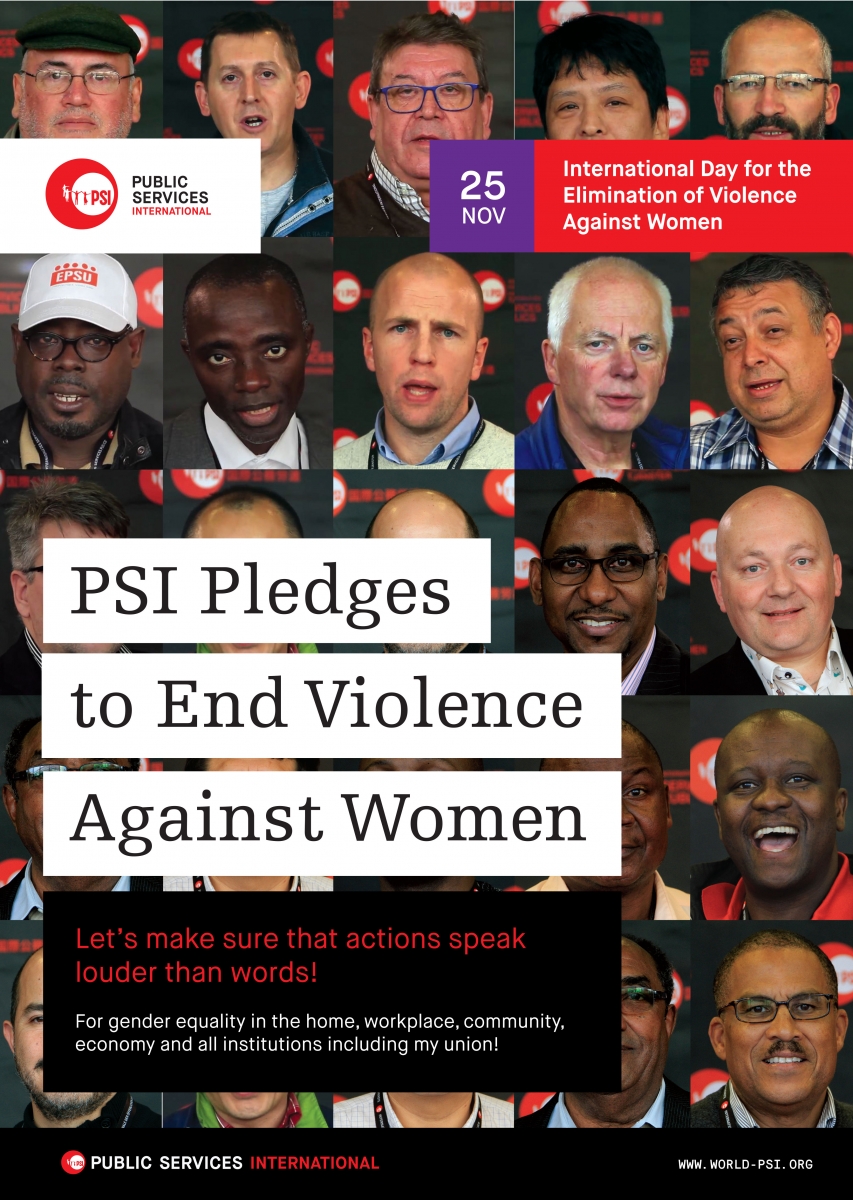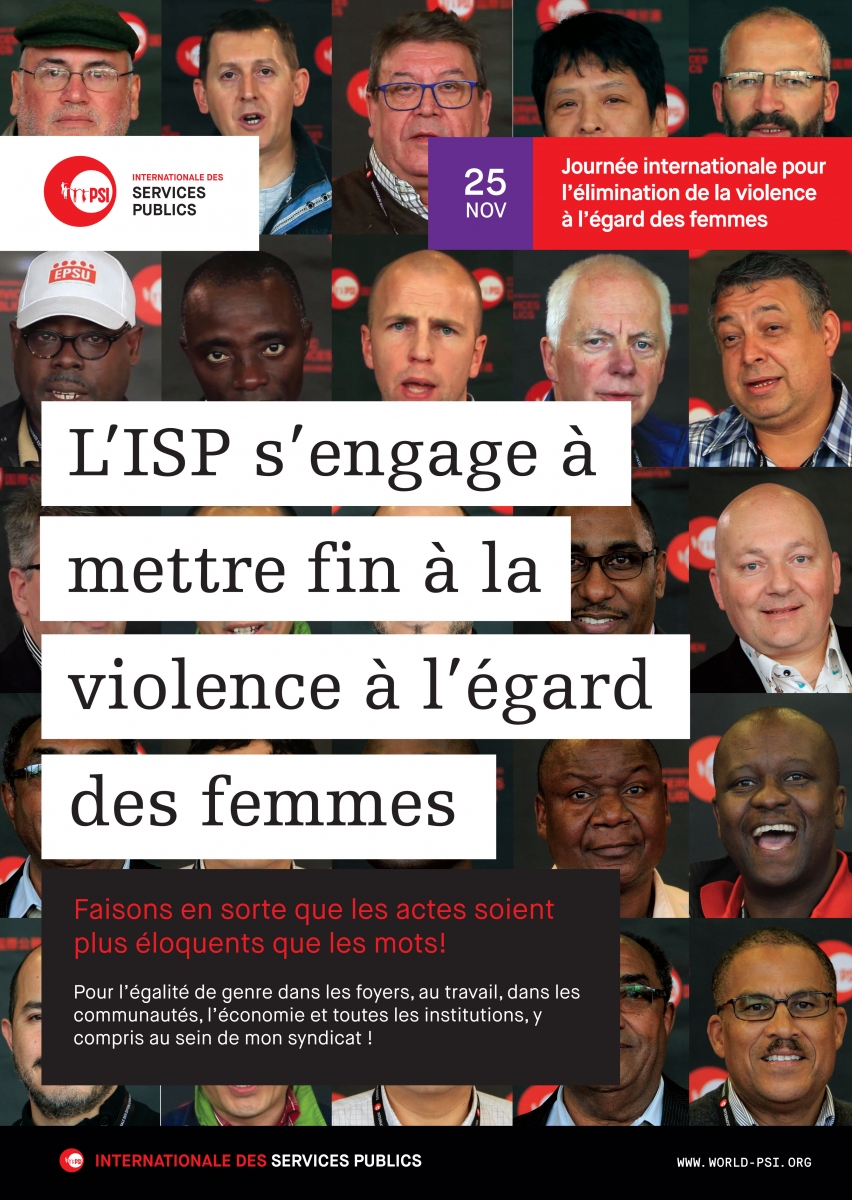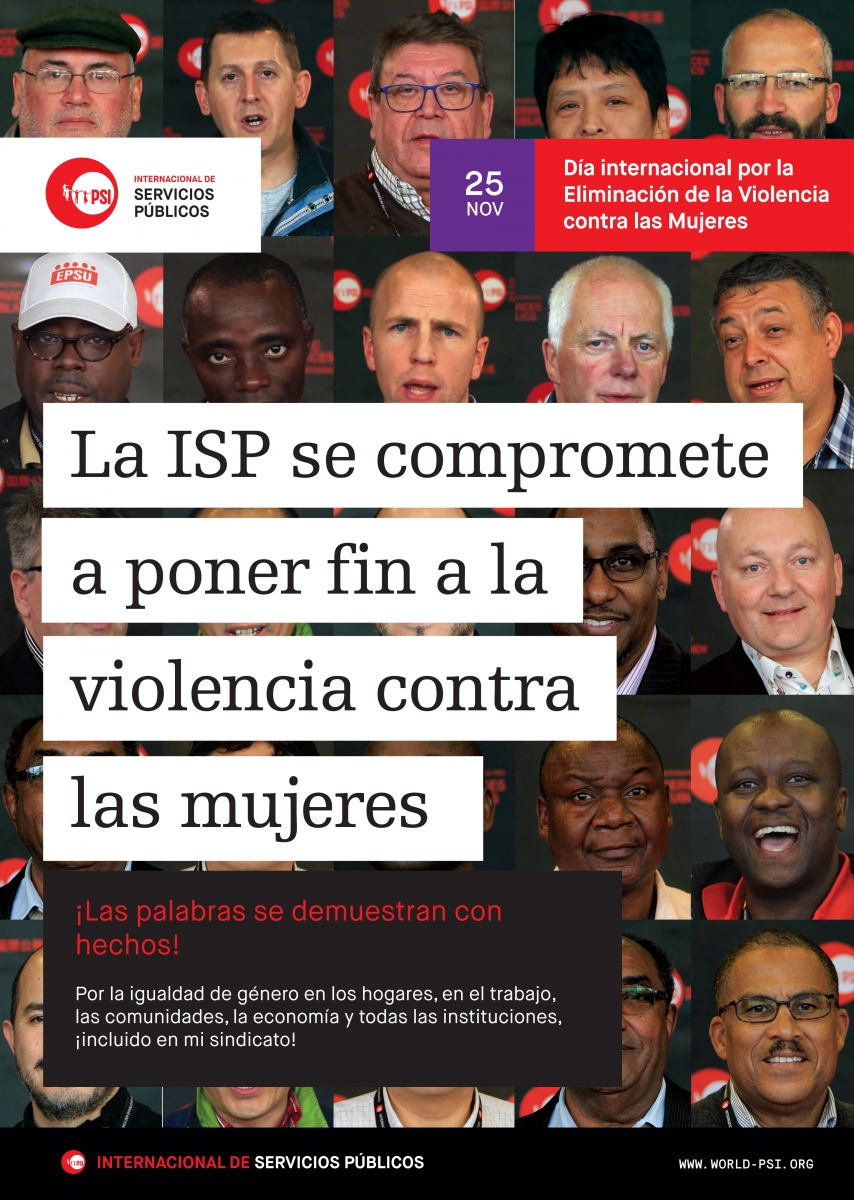International Day for the Elimination of Violence Against Women

“In my country, Australia, we know that one in three women at some time in their lives experience domestic violence or violence against them in a sexual way. We also know that one in four children see domestic violence take place in their home. We know… that one women each week loses her life through domestic violence or violence committed by a male person whom she knows. These are unacceptable standards in any country in which we live” said McLean, as he introduced Boemo Bato from Botswana and Julian Corrales from Colombia, two female and male young workers who have shaped a future free of violence.
Bato brought hope in the fact that “PSI has adopted for the first time a gender-mainstreamed Programme of Action that provides a broad political commitment”. But real change relies on people acting. Men have a major responsibility and historical opportunity in transforming gender relations and take individual and collective actions in different contexts. “It’s time for us men to end violence in our language, in our actions, in our unions and in human history”, emphasized Corrales.
This symbolic event took place as a step forward in the international trade union movement’s campaign for a new ILO Convention to end violence against women and men in the world of work, the first discussion of which will take place at the ILC 2018. PSI’s male voices – Charles Mukhwaya from Kenya, Joao Domingos Gomes do Santos from Brazil, Venkata Narasimhan from India and Kevin McHugh from the United Kingdom – were heard around the globe: they not only reached our union members in Africa and Arab countries, Asia Pacific, Europe and the Americas, they also reached the representatives of governments and employers with a strong message urging for the end of violence against women, and in particular at work.
Rosa Pavanelli, PSI General Secretary, congratulated this step “that clearly defines the aim to end gender violence as a struggle for human rights and freedom for all, integrates the systemic causes of violence against women and addresses the fundamental needs of women´s economic, political, educational, social and integral personal autonomy”.
Finally, Juneia Batista, PSI WOC Chair, declared “The PSI WOC members endorse this common work to transform gender relations, including the historic sexual division of labour, the undervaluing of women’s work and the fight for the real materialization of women´s rights, including their sexual and reproductive life”.




